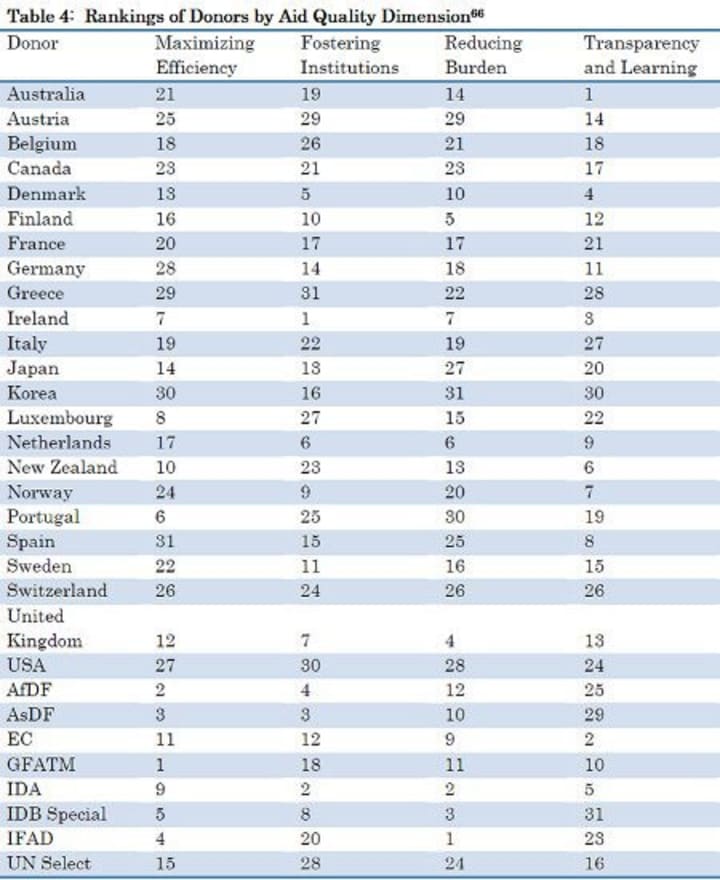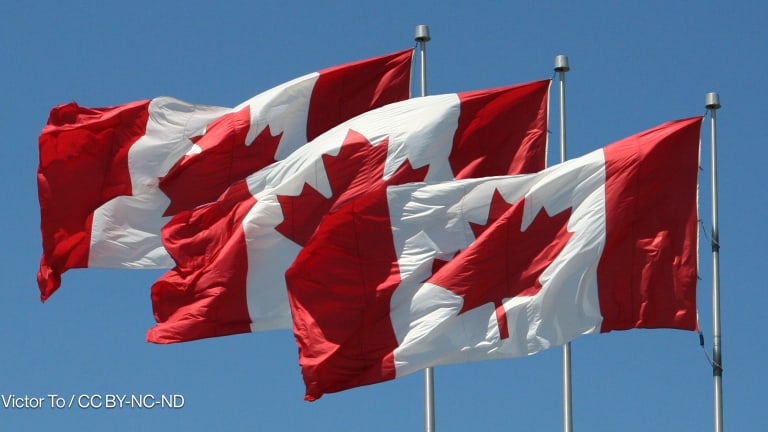
How do donor countries and their aid agencies fare in terms of quality and effectiveness of the foreign aid they provide to the developing world? A new study says no country outdoes all the others when it comes to aid effectiveness.
Each country and agency has its strengths and weaknesses, according to a joint study by the Center for Global Development and the Global Economy and Development program at the Brookings Institution.
The study explored the quality of foreign aid provided by 23 members of the Development Assistance Committee of the Organization for Economic Cooperation and Development as well as of several multilateral aid agencies. It made use of 30 indicators grouped under four categories:
- Maximizing efficiency, or how smartly aid funds were distributed.- Fostering institutions, or the degree to which aid is building the capacity of recipient governments.- Reducing the burden on recipient countries, or how much effort aid recipients need to put in to secure funds.- Transparency and learning, or how much information about the flow of aid money is available.
The four categories are an attempt to capture donors’ adherence to international standards outlined in the Accra Agenda for Action and the Paris Declaration on Aid Effectiveness as well as their commitment to transparency, the report explained.
The study ranked donors on each of the four indices of aid quality. It did not provide an overall ranking that aggregates all four categories.
Ireland and the World Bank’s International Development Association were on the top 10 in all four dimensions of aid quality. They were the only two donors to receive high marks on all four indices.
The Netherlands, Denmark, Inter-American Development Bank’s Special Fund and the Asian Development Fund were in the top 10 in three out of the four categories, while 18 of the donors assessed made the top 10 in at least one of the aid quality indices.
Some countries, including the U.S., Switzerland and Greece, did poorly across all categories. The three countries were consistently in the bottom 10 rankings in the four indices.
The U.S. was rated poorly on nine of the 30 indicators, including share of untied aid, use of recipient countries’ financial systems, minimization of fragmentation across its multiple aid agencies, contribution to multilateral agencies, and reporting of the aid delivery channels it uses.
The table below shows how each of the country in the sample performed under each of the four dimensions of aid quality. CGD and Brookings also set up an interactive tool that allows users to compare results at the country and agency levels.

Source: Center for Global Development
Multilaterals fare better
Multilateral agencies had higher average rankings on three of the four aid quality categories. The agencies took the top five rankings on maximizing efficiency, four of the top eight slots on fostering institutions and the top three on reducing burden. Multilaterals, however, with the exception of IDA and the European Commission, performed poorly in terms of transparency and learning.
Differences within agencies
The study also assessed individual aid agencies of the countries in its sample. It found that “agency performance can vary widely for a single bilateral donor.”
This variety was specifically evident among the U.S. aid agencies. The study indicated that the Millennium Challenge Corp. did well on the majority of the categories, while the U.S. Agency for International Development and the U.S. Defense Department performed poorly on most.
CGD and the Brookings Institution excluded the consideration of humanitarian aid in both country- and agency-level analyses. The authors, including CGD President Nancy Birdsall, explained that humanitarian aid serves a different purpose and its effectiveness is already measured by a separate index.




